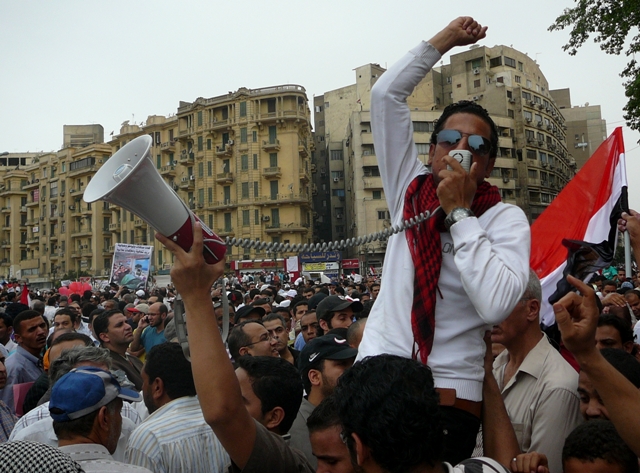Der nächste arabische Frühling kommt

Vor genau zehn Jahren brach in Tunesien der arabische Frühling aus. Und, wie Nikki Ikani hier schreibt, er hat nie aufgehört und wird weiter gehen solange sich nichts grundlegend ändert:
Authorities have used the COVID-19 pandemic which swept across the world in 2020 to blunt the momentum of these movements.
Yet despite this temporary setback, the pandemic will make such a reboot of the Arab uprisings more likely. It will draw attention to the legitimacy and governance deficit of regimes in the region. The short-term stability which emerged during the pandemic is likely to dissipate once it ebbs, and corruption, youth unemployment and lack of reforms resurface as prime worries. Anti-government uprisings in one or more of these countries are in the cards.
More towards the south, many countries in Sub-Saharan Africa have experienced varying degrees of anti-government protests for a number of years, some of them violently repressed. In Nigeria in October, at least 56 people died in a series of mass protests against policy brutality. Although some of these protests may still be unorganized or decentralised, we have learnt from the Arab uprisings in 2010 that these things may change rapidly. The continued corruption, violence and rising food and fuel prices at the root of the current protests across the continent are the same issues as those which proved so combustible a decade ago.
The World Bank has warned that the pandemic could drive up to 40 million Africans into extreme poverty in 2020, ‘erasing at least five years of progress in fighting poverty’. The International Red Cross fears the curfews and lockdowns imposed by governments across the continent will have a devastating aftermath and will result in a ‘socio-economic earthquake’. The cumulative effect of these movements may prove to be highly explosive, which would have major strategic implications for the region and the European Union.
In the aftermath of the Arab uprisings, questions were raised about why the waves of unrest, and especially their rapid spread across the region, had not been predicted by governments, media or academics worldwide. Some argued the uprisings were a ‘black swan’ – an unpredicted, rare and high-impact event that is often only rationalized with the benefit of hindsight.
Ten years on, however, the same cannot be said. Revolutionary uprisings against oppressive regimes in North Africa and Sub Saharan Africa are no longer rare. And despite the fact that EU finds itself in the middle of a pandemic which has enormous social, political and economic implications, it cannot afford to turn a blind eye to authoritarianism and structural problems that beset its neighbours on the African continent.
So, what can the EU do? Prior to 2010, the desire of European member states not to antagonize autocratic partner regimes in the region fuelled this focus on stability and authoritarian resilience. This preferences for ‘stable authoritarianism’ are political choices which the EU has little power to prevent. Yet action can still be taken on different fronts.
For example in 2010 there was no scenario planning or structural forecasting by the EU to anticipate sudden political upheaval and regime change in Northern Africa. Now that a new revolutionary chapter may start once the pandemic comes to an end, the EU cannot afford to make the same mistakes. Naturally, the timing, nature and spread of revolutionary upheaval will remain nigh impossible to predict. Yet the return of business as usual, and especially the focus on the day-to-day events of the country desks at its External Action Service is worrying. The EU needs to consider that potential disruptions may emerge. And although the potential outcomes cannot be predicted, more frequent and structural scenario planning, beyond sporadic ad hoc endeavours taking place currently, is crucial. In addition to opening the eyes of decision-makers to the different possible futures which may unfold, scenario planning increases the availability of resources for detecting and preventing strategic surprises and other harmful attacks or developments, and thus increases preparedness.
Just like in 2010, stress factors such as the growing outrage at police brutality, the dissatisfaction with nepotism, patronage and favouritism and insufficient economic growth – are starting to converge. And just like in 2010, this is translated in increased socio-economic rights activism, as revolutionary movements are gaining steam. While these movements may have been set back by the pandemic, their grievances will not dissipate. The EU cannot be surprised twice.